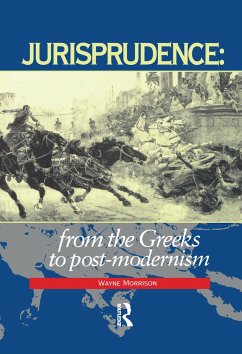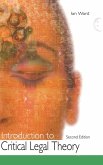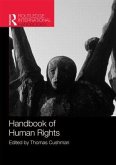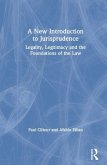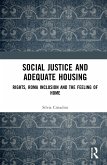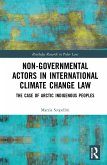- Gebundenes Buch
- Merkliste
- Auf die Merkliste
- Bewerten Bewerten
- Teilen
- Produkt teilen
- Produkterinnerung
- Produkterinnerung
This challenging book on jurisprudence begins by posing questions in the post-modern context,and then seeks to bridge the gap between our traditions and contemporary situation.
Andere Kunden interessierten sich auch für
![Introduction to Critical Legal Theory Introduction to Critical Legal Theory]() Ian WardIntroduction to Critical Legal Theory219,99 €
Ian WardIntroduction to Critical Legal Theory219,99 €![Handbook of Human Rights Handbook of Human Rights]() Handbook of Human Rights83,99 €
Handbook of Human Rights83,99 €![Judith Butler Judith Butler]() Elena LoizidouJudith Butler199,99 €
Elena LoizidouJudith Butler199,99 €![Property Property]() Margaret DaviesProperty218,99 €
Margaret DaviesProperty218,99 €![A New Introduction to Jurisprudence A New Introduction to Jurisprudence]() Paul CliteurA New Introduction to Jurisprudence180,99 €
Paul CliteurA New Introduction to Jurisprudence180,99 €![Social Justice and Adequate Housing Social Justice and Adequate Housing]() Silvia CittadiniSocial Justice and Adequate Housing179,99 €
Silvia CittadiniSocial Justice and Adequate Housing179,99 €![Non-Governmental Actors in International Climate Change Law Non-Governmental Actors in International Climate Change Law]() Marzia ScopellitiNon-Governmental Actors in International Climate Change Law180,99 €
Marzia ScopellitiNon-Governmental Actors in International Climate Change Law180,99 €-
-
-
This challenging book on jurisprudence begins by posing questions in the post-modern context,and then seeks to bridge the gap between our traditions and contemporary situation.
Hinweis: Dieser Artikel kann nur an eine deutsche Lieferadresse ausgeliefert werden.
Hinweis: Dieser Artikel kann nur an eine deutsche Lieferadresse ausgeliefert werden.
Produktdetails
- Produktdetails
- Verlag: Routledge-Cavendish
- Seitenzahl: 598
- Erscheinungstermin: 1. Februar 2016
- Englisch
- Abmessung: 240mm x 161mm x 36mm
- Gewicht: 1054g
- ISBN-13: 9781138174511
- ISBN-10: 1138174513
- Artikelnr.: 45024491
- Herstellerkennzeichnung
- Libri GmbH
- Europaallee 1
- 36244 Bad Hersfeld
- gpsr@libri.de
- Verlag: Routledge-Cavendish
- Seitenzahl: 598
- Erscheinungstermin: 1. Februar 2016
- Englisch
- Abmessung: 240mm x 161mm x 36mm
- Gewicht: 1054g
- ISBN-13: 9781138174511
- ISBN-10: 1138174513
- Artikelnr.: 45024491
- Herstellerkennzeichnung
- Libri GmbH
- Europaallee 1
- 36244 Bad Hersfeld
- gpsr@libri.de
Wayne Morrison
Chapter 1 The Problem of Jurisprudence, or Telling the Truth of Law: an
entry into recurring questions?; Chapter 2 Origins: Classical Greece and
the idea of Natural Law; Chapter 3 The Laws of Nature, Man's Power and God:
the synthesis of mediaeval Christendom; Chapter 4 Thomas Hobbes and the
Origins of the Imperative Theory of Law: or nana transformed into earthly
power; Chapter 5 David Hume - Defender of Experience and Tradition Against
the Claims of Reason to Guide Modernity; Chapter 6 Immanuel Kant and the
Promotion of a Critical Rational Modernity; Chapter 7 From Rousseau to
Hegel: the birth of the expressive tradition of law and the dream of Law's
Ethical Life; Chapter 8 Adam Smith, Jeremy Bentham and John Stuart Mill:
the early development of a utilitarian foundation for law; Chapter 9 John
Austin and the Misunderstood Birth of Legal Positivism; Chapter 10 Karl
Marx 1 Marx (1818-1883) was bom in Trier, in what is now Germany. He was
the oldest son of a Jewish lawyer and the descendent of a long line of
rabbis. His father converted to Protestantism in order not to harm his
legal business and Marx was educated as a Protestant. Rationalism,
humanitananism and a pragmatic view of the world were the messages of his
upbringing, rather than religious fundamentalism. and the Marxist Heritage
for Understanding Law And Society; Chapter 11 Weber, Nietzsche and the
Holocaust: towards the disenchantment of modernity; Chapter 12 The Pure
Theory of Hans Kelsen; Chapter 13 : 418). and the theory of law as a
self-referring system of rules; Chapter 14 Liberalism and the Idea of the
Just Society in Late Modernity: a reading of Kelsen, Fuller, Rawls, Nozick
and communitarian critics; Chapter 15 Ronald Dworkin and the Struggle
Against Disenchantment: or law within the interpretative ethics of liberal
jurisprudence; Chapter 16 Scepticism, Suspicion and the Critical Legal
Studies Movement; Chapter 17 Understanding Feminist Jurisprudence; Chapter
18 Concluding Remarks: or reflections on the temptations for jurisprudence
in post-modernity;
entry into recurring questions?; Chapter 2 Origins: Classical Greece and
the idea of Natural Law; Chapter 3 The Laws of Nature, Man's Power and God:
the synthesis of mediaeval Christendom; Chapter 4 Thomas Hobbes and the
Origins of the Imperative Theory of Law: or nana transformed into earthly
power; Chapter 5 David Hume - Defender of Experience and Tradition Against
the Claims of Reason to Guide Modernity; Chapter 6 Immanuel Kant and the
Promotion of a Critical Rational Modernity; Chapter 7 From Rousseau to
Hegel: the birth of the expressive tradition of law and the dream of Law's
Ethical Life; Chapter 8 Adam Smith, Jeremy Bentham and John Stuart Mill:
the early development of a utilitarian foundation for law; Chapter 9 John
Austin and the Misunderstood Birth of Legal Positivism; Chapter 10 Karl
Marx 1 Marx (1818-1883) was bom in Trier, in what is now Germany. He was
the oldest son of a Jewish lawyer and the descendent of a long line of
rabbis. His father converted to Protestantism in order not to harm his
legal business and Marx was educated as a Protestant. Rationalism,
humanitananism and a pragmatic view of the world were the messages of his
upbringing, rather than religious fundamentalism. and the Marxist Heritage
for Understanding Law And Society; Chapter 11 Weber, Nietzsche and the
Holocaust: towards the disenchantment of modernity; Chapter 12 The Pure
Theory of Hans Kelsen; Chapter 13 : 418). and the theory of law as a
self-referring system of rules; Chapter 14 Liberalism and the Idea of the
Just Society in Late Modernity: a reading of Kelsen, Fuller, Rawls, Nozick
and communitarian critics; Chapter 15 Ronald Dworkin and the Struggle
Against Disenchantment: or law within the interpretative ethics of liberal
jurisprudence; Chapter 16 Scepticism, Suspicion and the Critical Legal
Studies Movement; Chapter 17 Understanding Feminist Jurisprudence; Chapter
18 Concluding Remarks: or reflections on the temptations for jurisprudence
in post-modernity;
Chapter 1 The Problem of Jurisprudence, or Telling the Truth of Law: an entry into recurring questions?; Chapter 2 Origins: Classical Greece and the idea of Natural Law; Chapter 3 The Laws of Nature, Man's Power and God: the synthesis of mediaeval Christendom; Chapter 4 Thomas Hobbes and the Origins of the Imperative Theory of Law: or nana transformed into earthly power; Chapter 5 David Hume - Defender of Experience and Tradition Against the Claims of Reason to Guide Modernity; Chapter 6 Immanuel Kant and the Promotion of a Critical Rational Modernity; Chapter 7 From Rousseau to Hegel: the birth of the expressive tradition of law and the dream of Law's Ethical Life; Chapter 8 Adam Smith, Jeremy Bentham and John Stuart Mill: the early development of a utilitarian foundation for law; Chapter 9 John Austin and the Misunderstood Birth of Legal Positivism; Chapter 10 Karl Marx 1 Marx (1818-1883) was bom in Trier, in what is now Germany. He was the oldest son of a Jewish lawyer and the descendent of a long line of rabbis. His father converted to Protestantism in order not to harm his legal business and Marx was educated as a Protestant. Rationalism, humanitananism and a pragmatic view of the world were the messages of his upbringing, rather than religious fundamentalism. and the Marxist Heritage for Understanding Law And Society; Chapter 11 Weber, Nietzsche and the Holocaust: towards the disenchantment of modernity; Chapter 12 The Pure Theory of Hans Kelsen; Chapter 13 : 418). and the theory of law as a self-referring system of rules; Chapter 14 Liberalism and the Idea of the Just Society in Late Modernity: a reading of Kelsen, Fuller, Rawls, Nozick and communitarian critics; Chapter 15 Ronald Dworkin and the Struggle Against Disenchantment: or law within the interpretative ethics of liberal jurisprudence; Chapter 16 Scepticism, Suspicion and the Critical Legal Studies Movement; Chapter 17 Understanding Feminist Jurisprudence; Chapter 18 Concluding Remarks: or reflections on the temptations for jurisprudence in post-modernity;
Chapter 1 The Problem of Jurisprudence, or Telling the Truth of Law: an
entry into recurring questions?; Chapter 2 Origins: Classical Greece and
the idea of Natural Law; Chapter 3 The Laws of Nature, Man's Power and God:
the synthesis of mediaeval Christendom; Chapter 4 Thomas Hobbes and the
Origins of the Imperative Theory of Law: or nana transformed into earthly
power; Chapter 5 David Hume - Defender of Experience and Tradition Against
the Claims of Reason to Guide Modernity; Chapter 6 Immanuel Kant and the
Promotion of a Critical Rational Modernity; Chapter 7 From Rousseau to
Hegel: the birth of the expressive tradition of law and the dream of Law's
Ethical Life; Chapter 8 Adam Smith, Jeremy Bentham and John Stuart Mill:
the early development of a utilitarian foundation for law; Chapter 9 John
Austin and the Misunderstood Birth of Legal Positivism; Chapter 10 Karl
Marx 1 Marx (1818-1883) was bom in Trier, in what is now Germany. He was
the oldest son of a Jewish lawyer and the descendent of a long line of
rabbis. His father converted to Protestantism in order not to harm his
legal business and Marx was educated as a Protestant. Rationalism,
humanitananism and a pragmatic view of the world were the messages of his
upbringing, rather than religious fundamentalism. and the Marxist Heritage
for Understanding Law And Society; Chapter 11 Weber, Nietzsche and the
Holocaust: towards the disenchantment of modernity; Chapter 12 The Pure
Theory of Hans Kelsen; Chapter 13 : 418). and the theory of law as a
self-referring system of rules; Chapter 14 Liberalism and the Idea of the
Just Society in Late Modernity: a reading of Kelsen, Fuller, Rawls, Nozick
and communitarian critics; Chapter 15 Ronald Dworkin and the Struggle
Against Disenchantment: or law within the interpretative ethics of liberal
jurisprudence; Chapter 16 Scepticism, Suspicion and the Critical Legal
Studies Movement; Chapter 17 Understanding Feminist Jurisprudence; Chapter
18 Concluding Remarks: or reflections on the temptations for jurisprudence
in post-modernity;
entry into recurring questions?; Chapter 2 Origins: Classical Greece and
the idea of Natural Law; Chapter 3 The Laws of Nature, Man's Power and God:
the synthesis of mediaeval Christendom; Chapter 4 Thomas Hobbes and the
Origins of the Imperative Theory of Law: or nana transformed into earthly
power; Chapter 5 David Hume - Defender of Experience and Tradition Against
the Claims of Reason to Guide Modernity; Chapter 6 Immanuel Kant and the
Promotion of a Critical Rational Modernity; Chapter 7 From Rousseau to
Hegel: the birth of the expressive tradition of law and the dream of Law's
Ethical Life; Chapter 8 Adam Smith, Jeremy Bentham and John Stuart Mill:
the early development of a utilitarian foundation for law; Chapter 9 John
Austin and the Misunderstood Birth of Legal Positivism; Chapter 10 Karl
Marx 1 Marx (1818-1883) was bom in Trier, in what is now Germany. He was
the oldest son of a Jewish lawyer and the descendent of a long line of
rabbis. His father converted to Protestantism in order not to harm his
legal business and Marx was educated as a Protestant. Rationalism,
humanitananism and a pragmatic view of the world were the messages of his
upbringing, rather than religious fundamentalism. and the Marxist Heritage
for Understanding Law And Society; Chapter 11 Weber, Nietzsche and the
Holocaust: towards the disenchantment of modernity; Chapter 12 The Pure
Theory of Hans Kelsen; Chapter 13 : 418). and the theory of law as a
self-referring system of rules; Chapter 14 Liberalism and the Idea of the
Just Society in Late Modernity: a reading of Kelsen, Fuller, Rawls, Nozick
and communitarian critics; Chapter 15 Ronald Dworkin and the Struggle
Against Disenchantment: or law within the interpretative ethics of liberal
jurisprudence; Chapter 16 Scepticism, Suspicion and the Critical Legal
Studies Movement; Chapter 17 Understanding Feminist Jurisprudence; Chapter
18 Concluding Remarks: or reflections on the temptations for jurisprudence
in post-modernity;
Chapter 1 The Problem of Jurisprudence, or Telling the Truth of Law: an entry into recurring questions?; Chapter 2 Origins: Classical Greece and the idea of Natural Law; Chapter 3 The Laws of Nature, Man's Power and God: the synthesis of mediaeval Christendom; Chapter 4 Thomas Hobbes and the Origins of the Imperative Theory of Law: or nana transformed into earthly power; Chapter 5 David Hume - Defender of Experience and Tradition Against the Claims of Reason to Guide Modernity; Chapter 6 Immanuel Kant and the Promotion of a Critical Rational Modernity; Chapter 7 From Rousseau to Hegel: the birth of the expressive tradition of law and the dream of Law's Ethical Life; Chapter 8 Adam Smith, Jeremy Bentham and John Stuart Mill: the early development of a utilitarian foundation for law; Chapter 9 John Austin and the Misunderstood Birth of Legal Positivism; Chapter 10 Karl Marx 1 Marx (1818-1883) was bom in Trier, in what is now Germany. He was the oldest son of a Jewish lawyer and the descendent of a long line of rabbis. His father converted to Protestantism in order not to harm his legal business and Marx was educated as a Protestant. Rationalism, humanitananism and a pragmatic view of the world were the messages of his upbringing, rather than religious fundamentalism. and the Marxist Heritage for Understanding Law And Society; Chapter 11 Weber, Nietzsche and the Holocaust: towards the disenchantment of modernity; Chapter 12 The Pure Theory of Hans Kelsen; Chapter 13 : 418). and the theory of law as a self-referring system of rules; Chapter 14 Liberalism and the Idea of the Just Society in Late Modernity: a reading of Kelsen, Fuller, Rawls, Nozick and communitarian critics; Chapter 15 Ronald Dworkin and the Struggle Against Disenchantment: or law within the interpretative ethics of liberal jurisprudence; Chapter 16 Scepticism, Suspicion and the Critical Legal Studies Movement; Chapter 17 Understanding Feminist Jurisprudence; Chapter 18 Concluding Remarks: or reflections on the temptations for jurisprudence in post-modernity;

